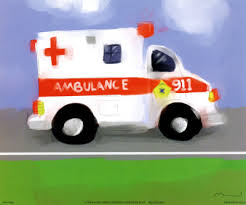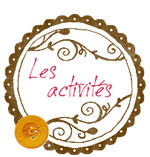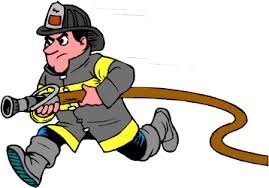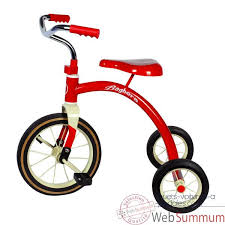Accidents,incidents

At the beginning of the childminding relationship
· Agree with the parents as to what to do when a child needs emergency medical treatment and record this in the child record documents.
· Gain emergency contact details for the parents and any other suitable adults and record the details in the child record documents.
Minimising the likelihood or an accident in the home
· A risk assessment will be carried out and reviewed at least annually .
· The risk assessment will identify aspects of the environment which need to be checked on a regular basis – a record of these particular aspects will be maintained and a written record of when and by whom they have been checked will be kept. Reasonable steps will be taken to minimise identified risks.
In the event of an incident
· I will follow any set procedures given to me by the parent if it was known that the incident could take place (for example a child having a fit or going into anaphylactic shock due to an allergy).
· If still not resolved and the incident is minor I will call the parents or another emergency contact for further guidance.
o If I am unable to contact the parents or any other emergency contact I will contact NHS direct and follow their advice.
o If suitable I will use items from my first aid box.
· If the incident is serious I will call an ambulance.
· If I am caring for other children at the same time I will look to provide approved care for them or contact their parents for early collection. In a genuine emergency I may have to leave them with an unregistered carer.
· I will record all the information on the incident in the Accident/Incident record form.
· In the case of a serious incident, such as one that required a stay in hospital, I will inform Ofsted and my insurer.
In the event of a minor accident
· I will attempt to make the environment safe for all the children I am caring for.
· I will use items from my first aid box and my knowledge of first aid to make the child better, limit the injury or limit the potential for the injury to increase.
· I will call the parent if I feel they need to know prior to collection.
· At collection I will tell the parent the details of the accident.
· I will fill in the Accident/Incident record form.
In the event of a major accident
· I will attempt to make the environment safe for all the children I am caring for.
· I will follow the agreement made with the parents on what to do if the child emergency medical treatment which will be noted in the child’s record.
· If suitable I will call the parents or another emergency contact for further guidance.
· If I am not confident that the child will be okay I will call an ambulance.
· If I am caring for other children at the same time I will look to provide approved care for them or contact their parents for early collection. In a genuine emergency I may have to leave them with an unregistered carer.
· I will record all the information on the incident in the Accident/Incident record form.
· I will aim to provide equal opportunities for all in my care, regardless of their gender, race, culture, social background, religion, language or any disabilities by supporting their individual needs such as diet and religious or cultural festivals (for which I will ask details of at the time of commencing the childminding relationship).
·
· I will promote positive images/examples to develop equal opportunities through:
- play and toys;
- Food and meals;
- Marking festivals and special occasions;
- being a good example;
- encouraging children to respect others.
·
· I will aim to adapt activities to ensure all children (with the exception of babies) can participate equally, regardless of age difference and learning ability.
Procedure: Fire
If a fire occurs
· First priority will be the safe evacuation of children.
· The escape route will be out of the front door if safe; alternatively the lounge patio doors can be used. Keys to these doors will be kept close.
· If we are upstairs and unable to get downstairs we will go into the bedroom at the front of the house if safe, close the door, put bedding and cushions against the door, open the window and call for help. .If the front bedroom is not safe we will use another bedroom, the first being the main bedroom and follow the procedure.
· Once we have either escaped or are in one of the bedrooms, if a telephone is available we will call the fire brigade.
· Once we have got out our external assembly point will be the entrance to the driveway of dering road
· We will stay out until we have clearance to return.
Reducing the risk of fire
· A BS EN safety standard fire blanket will be kept in the kitchen.
· Only fitted radiators will be used to heat the home.
· Matches will not be used for lighting the gas cooker.
· There will be no deep fat frying.
· Lighting materials will be kept out of sight and out of reach of children.
· Upholstered furniture will comply with the Furniture and Furnishings Regulations 1988.
Reducing the impact of a fire
· Three smoke alarms on downstairs and three on upstairs are fitted and will be tested regularly.
· The escape route plan will be reviewed regularly to ensure it remains suitable.
· The fire blanket in the kitchen will be used if a small fire on the hob occurs and it is safe for me to put the fire out.
· I will regularly take a few minutes to walk the escape route with everyone in the household and explain to all the children what to do in the case of a fire.
Policy: Promoting good behaviour
· I will discuss appropriate practice for promoting good behaviour with the parents prior to looking after the child and when required during the childminding relationship.
· Unless otherwise agreed with the parents, I will be consistent with all cared for and my own children, taking into account the age and individual development of the child.
· I will encourage good behaviour and give clear and consistent expectations about acceptable behaviour by:
- setting a good example;
- being consistent;
- demonstrating concern and respect for others, living things and the environment;
- encouraging children to share;
- readily praising and approving wanted behaviour;
- distracting and re-directing children’s activities;
- encouraging responsibility;
- helping children’s understanding of what is right and wrong by explaining, for example, why it is wrong to hurt somebody, or why is acceptable to have more food if everybody else has already had some;
- involving children in setting house rules and boundaries and identifying issues and finding solutions.
· I will never give physical punishment to any child.
· I will never threaten a child with physical punishment.
· Physical intervention will only be used to manage a child’s behaviour if it is necessary to prevent personal injury to the child or an adult, to prevent serious damage to property or in what would reasonably be regarded as exceptional circumstances. Any occasion where physical intervention is used to manage a child’s behaviour will be recorded and parents informed on the same day.
Policy: Outdoor play
· Children will be encouraged to play outside throughout the year and the garden will always be available to play in.
· Suitable outdoor clothing, taking into account the weather conditions, will be put on the children.
· Children will be supervised when playing outside.
· A slide, sand pit, balls, Wendy house as well as other toys will be available in the warmer months.
· The garden will be secure.
· Children may be taken on organised outdoor outings to gain a greater understanding of our environment. On these occasions the Outings Policy will be followed.
Procedure: Safeguarding children
My first priority will be the safety and welfare of the children I look after.
Suitable person
· I have an enhanced Criminal Records Bureau (CRB) Disclosure, which includes a Protection Of Children Act list /List 99 check.
· My husband has an enhanced Criminal Records Bureau (CRB) Disclosure, which includes a Protection Of Children Act list /List 99 check.
If I become concerned about a child’s welfare
· I may get concerned about a child’s safety and welfare if the following occurs (not an exhaustive list)
o significant changes in children’s behaviour;
o deterioration in their general well-being;
o unexplained bruising, marks or signs of possible abuse;
o neglect;
o the comments the child makes which give cause for concern
· I will keep a record of the causes of concern.
· If appropriate I will talk to the parents of the child once I become reasonably confident about the grounds for concern and record all the information.
· If it is not appropriate to talk to the parents, I will contact the Local Safeguarding Children Board of the local social services on 08458 247 247 however I may not identify the child in question at this time.
· I will follow the advice given to me from the local social services and record all the information.
· I will notify Ofsted on 08456 404040.
If a child abuse allegation is made against me
· To protect myself I will look to record all details of existing injuries in the Accidents/Incidents record pack and ask the parents to sign this form.
· If a formal allegation is brought against me I will contact the local social services and Ofsted. In addition I will contact my insurer and other parties as I see fit for advice.
· If the parent hasn’t already done so, I will suspend the childminding contact.
Policy: Working in partnership with parents
Prior to looking after the child
· Agree and sign written contact with parents.
· Go though the policies and procedures documents and offer the parents a copy to keep.
· Discuss the personality, likes/dislikes, current routine of the child.
· Discuss any particular medical /cultural /dietary /educational needs of the child and gain a clear understanding of what I need to do for the child in this respect.
· Understand what would comfort the child if he/she is upset when I first care for him/her.
· Talk to the parent about my home, my children and what a typical day would look like for their child when I care for them.
· Ask them to provide a change of clothes/outer wear/ sun lotion etc as appropriate.
· Ask if they could provide a “Special things” bag, containing items personal to the child, for use as discussion and getting-to-know-you points when I first care for their child.
Whilst looking after the child
· Encourage parents to let me know of any changes to their child’s medical /cultural /dietary /educational needs.
· On a weekly basis put together the expected timetable of activities and meals (for pre-school children).
· Keep a daily diary of the activities and meals and give this to the parents each evening (for babies and toddlers).
· Discuss any special events or achievements of the child.
· Discuss any particular behavioural issues if required, or any other concerns I may have.
· Inform the parent of any accidents or incidents affecting their child.
· Talk to the parents about what the child has learnt and encourage continuity of teaching in the home.
· Ask the parent if they would like me to encourage the child to learn anything specific in order to provide continuity.
· Attempt to gain permission for any ad hoc outings I would like to take their child on.
Procedure: Child not collected

If a child in my care has not been collected at the agreed time, in normal circumstances I will:
1. Wait for 30 minutes to see if the parent is late.
If parents do not arrive-
2. Call the parents on all available contact numbers.
If I am unable to contact a parent-
3. I will wait a further 30 minutes and then attempt to contact the parents again.
If I am still unable to contact a parent-
4. Call any other emergency contacts for the child and if I have had prior permission to allow the child to be collected by them I will ask them to collect the child. If they do not have permission I will ask them to attempt to contact the parents.
If I am unable to contact the emergency contacts or they are unable to collect the child/contact the parents-
5. Continue to look after the child until he/she is collected.
· During this time I will ensure distress to the child is kept to a minimum through engaging them in activity with my children.
· If I have an important appointment or if I need to take my children somewhere, if it is safe to do so I will take the child with me but only if I am able to leave a message on the parent’s phone or my husband is available to inform the parents when they arrive.
· I will always keep a record of the time that the child is collected.
· If the parents become habitually late I will discuss this with the parent initially and will highlight my out or hours rates, and if suitable propose a change to the hours of the childminding agreement. However if the parents continue to be habitually and extensively late I will look to terminate the childminding contract.
Policy: Promoting good health &
Food policy
· Follow basic standards of hygiene in the home and encourage children to do the same.
· Promote good personal hygiene through:
Encouraging children to wash hands when dirty and before each meal
Washing hands prior to food preparation and after any contact with raw meat
Each child having their own towel to use
A baby wipe being used for only one child and then thrown away
Encouraging children to put their hands or a tissue in front of their mouths when coughing or sneezing
Providing a stool in the downstairs toilet
Providing a potty if required and ensuring the potty is cleaned after each use
Explaining why hygiene is important.
· Inform parents of any illnesses and ailments in the home that may affect their child or them so that alternative arrangements can be made if they wish.
Policy: Sick Child
Child becomes sick
· Parents will be asked to inform me of any illnesses or ailments of their child that may affect other children I care for and alternative caring arrangements for the child should be made, unless the illness is a cough or cold or unless agreed otherwise at the time.
· If a child becomes sick whilst in my care I will endeavour to contact the parent and discuss the best course of action, which might be for the parent to pick up the child early and for the child to remain away until they are fit to return.
· In accordance with the Children Act regulations, notify Ofsted of any notifiable diseases as defined by the Health Protection Agency. Ofsted will also be notified if two or more children are affected by food poisoning or if any child has a serious disease.
· I will work through a cough or cold, and I accept babies /children into care that have coughs and colds, as long as they do not have a temperature or diarrhea act as well.
Administering Medication
· Written permission will be requested, at the start of the childminder relationship, to the seeking of any necessary emergency medical advice or treatment in the future.
· When caring for children with chronic illnesses I will seek information from the parents about the management of the condition, and work with the parents to provide the best possible care for the individual child.
· Any prescription medicines that a child needs to be given will only be given to the child when written permission is given by the parent giving details of dosage, frequency and any other relevant information. The long term / short term medication records will be used to record this information.
· Verbal permission will be required before I administer any non-prescription medicines and will be followed up with written consent. The short term medication records will be used to record this information.
Procedure: Complaints & Compliments
Compliments
· One way to improve my service is to understand what I do well; therefore I will be available for parents to give positive feedback and compliments.
· I will keep written compliments in my Complaints and Compliments folder.
Stopping a complaint from happening
· I will agree with the parents and put in writing all the details of the contract between myself and the parents prior to the beginning of the childminding relationship.
· I will show the parents the latest versions of my policies and procedures and will offer them a copy.
· I will endeavour to follow the policies and procedures at all times.
· I will encourage open dialogue in the relationship with the parents so that any misunderstandings can be sorted out.
If a formal complaint is made against me relating to National Standards for Childminding
· I will record the details of the complaint including:
- name of the complainant;
- date of the complaint;
- details of the complaint;
- action taken to resolve the complaint;
- the final outcome.
· I will keep a copy of any correspondence or written explanation with the parents concerned and prepare a summary of the complaint that would be available if any parents wished to see it.
· I have a legal obligation to investigate it and respond to the parents within 28 days.
· I will tell the parents of any action I have taken or intent to take as a result of their findings.
· I will discuss with the parents the suitability of me continuing to look after their child, unless the parents have already terminated the contract.
· I will seek legal advice as appropriate.
· I will keep written complaints in my Complaints and Compliments folder.
If a formal complaint is made against me not relating to National Standards for Childminding
· I will record the details of the complaint including:
- name of the complainant;
- date of the complaint;
- details of the complaint;
- action taken to resolve the complaint;
- the final outcome.
· I will keep a copy of any correspondence or written explanation with the parents concerned.
· I will attempt to discuss the nature of the complaint with the parents and resolve the complaint amicably.
· I will seek legal advice as appropriate.
· I will discuss with the parents the suitability of me continuing to look after their child, unless the parents have already terminated the contract.
· I will keep written complaints in my Complaints and Compliments folder.
Policy: Play, Exploration & active learning
· A large variety of age and development suitable toys, materials and objects will be available for play across a wide range and activities based on the children’s interests and needs.
· Shop bought toys and materials and objects such as fur cones gathered from nature trails, old magazines cut up and seeds and plants will all be used in play.
· Children will be made to feel at ease, secure and confident to help them to mentally and physically engage in learning.
· A weekly planner will be used to build play around, based on the 6 areas of EYFS learning and development (Personal, social and emotional development; Communication, Language and literacy; Problem solving, Reasoning and numeracy; Knowledge and understanding of the world; Physical development; creative development) to encourage a diverse range of learning.
· A method of differentiation will be used for play. Therefore the weekly planner may have one topic for all children but the play will be personalised for each child using a personal planner over a longer period.
· Personal planners will be based on learning and knowing about each child’s well-being and development, through regular observation and assessment against the EYFS Learning and Development stages and through partnership with parents and other practitioners involved in the child’s well-being .
· Whilst children will be offered and encouraged to join the activity suggested in the planner, it is recognised that active learners need to have some independence and control over their learning to keep their interest and to develop their creativity, therefore when able; children will be free to amend the play or to together choose another activity.
· There will be a balance of adult-led and child initiated activities.
Procedure: Lost child
Prevention when in the home
· External doors to the driveway will be locked. External doors to the garden may be unlocked if we are using the garden, at these times the side gate will be locked.
Prevention when out of the home
· I will follow the Outing Procedure.
· I will encourage all children to understand the need to be close to me at all times during outings.
· I will encourage children not to speak to strangers unless I am also with them.
· If I am on an ad hoc outing, if I feel it suitable, I will put wristbands with my mobile number on children’s wrists.
If a child is lost
· For each particular outing, I will recommend to each child what they should do if they are lost, in general the approach will be:
- to shout for me and look around without moving too far away;
- to find someone that they know, or someone that works at the place we are visiting and to ask for help;
- not to get into anyone’s car;
- not to walk off with anyone to a place where no-one else is;
· If I discover that a child is lost I will immediately make a search of the area.
· I will then alert staff/security staff if applicable.
· If I am still unsuccessful at finding the child I will alert the police and as soon as practical, contact the parent.
· At a suitable time I will make a report of the incident.


















